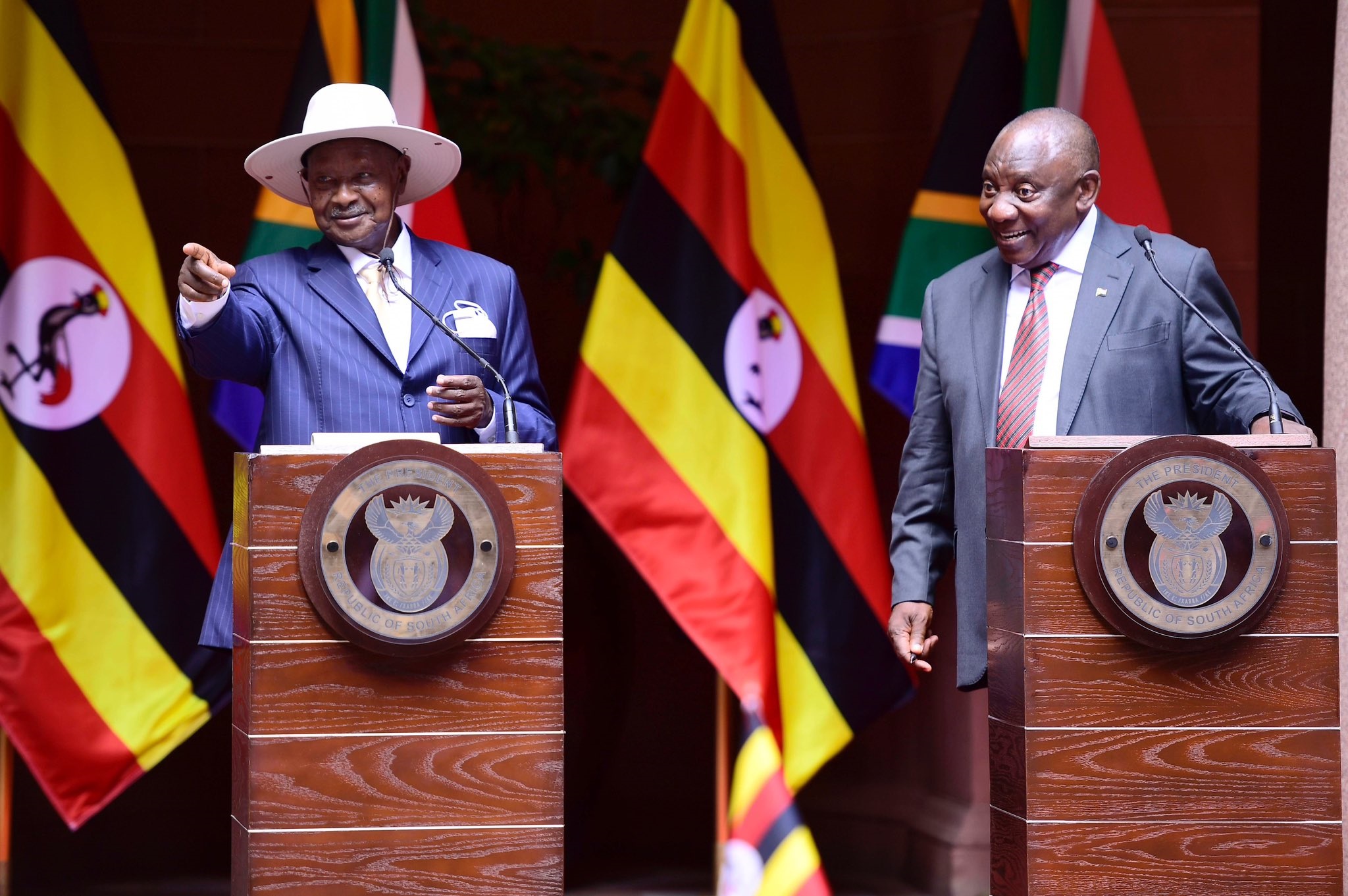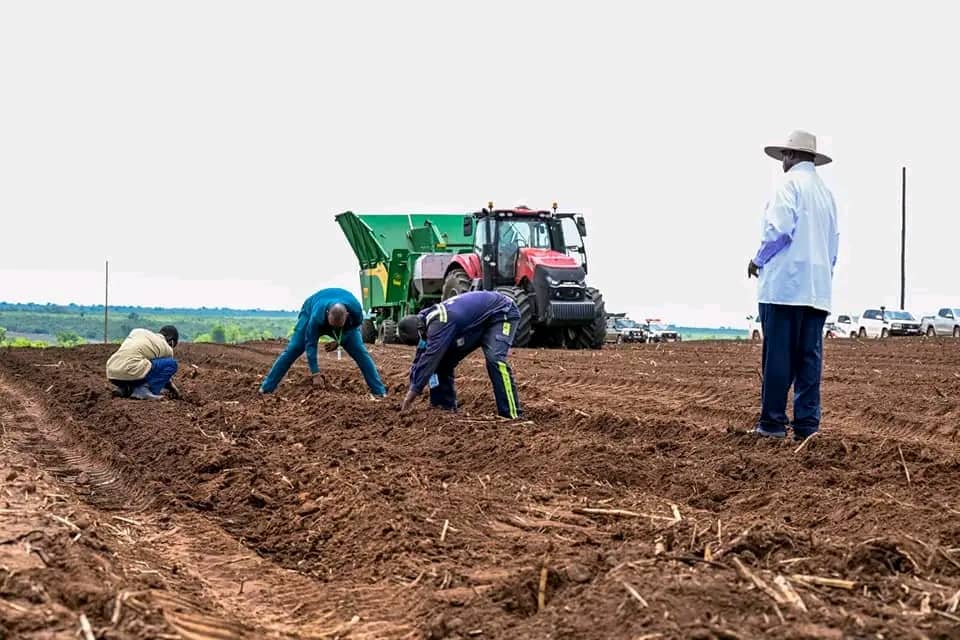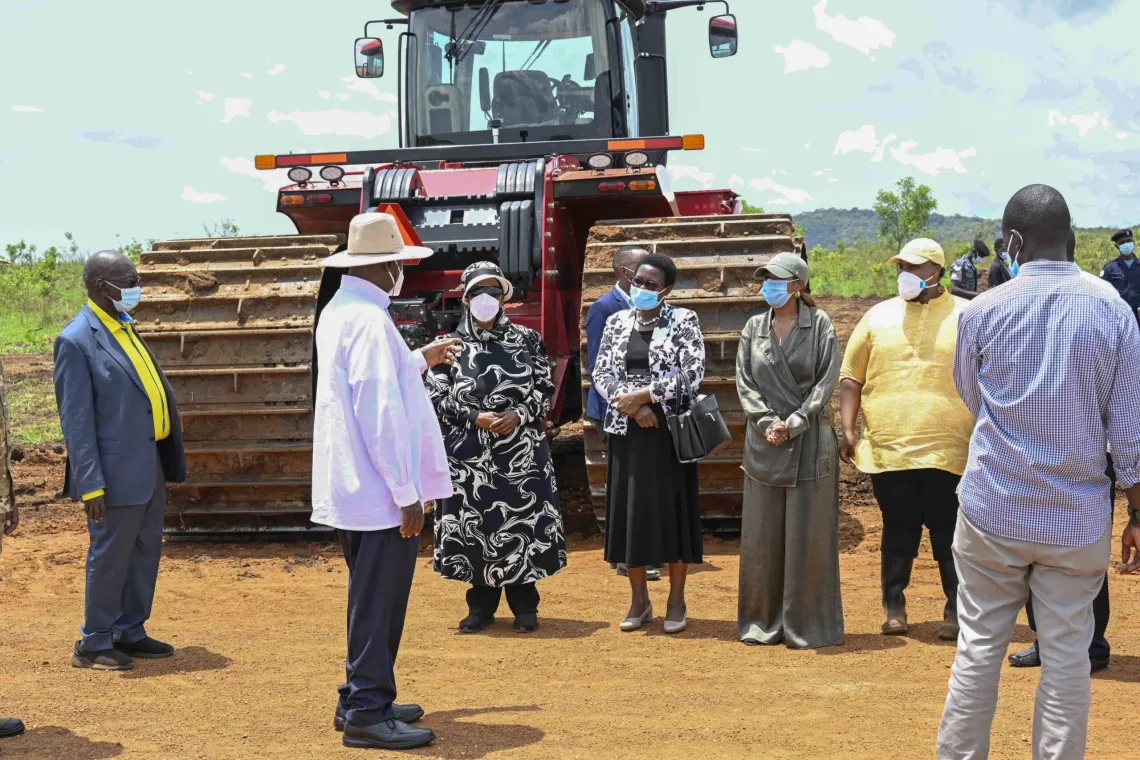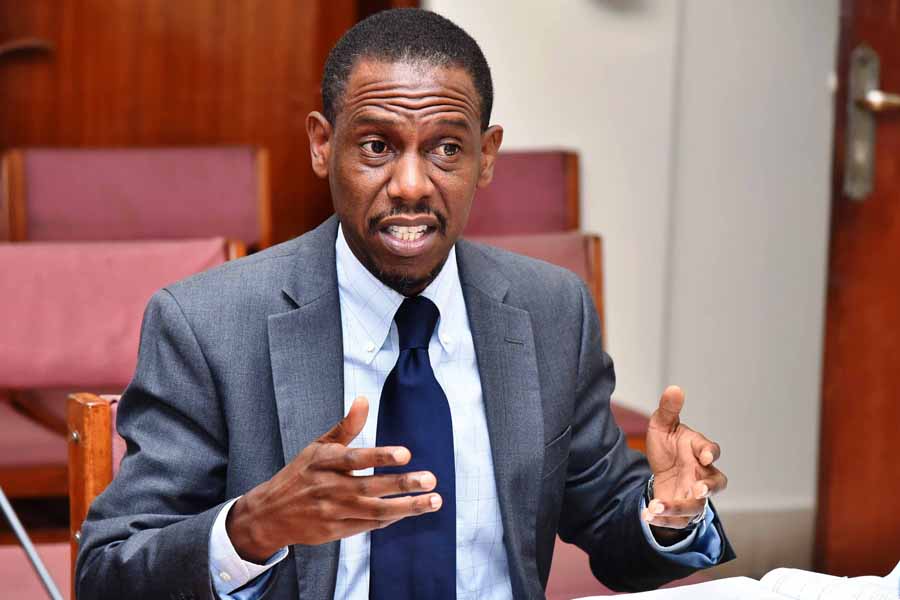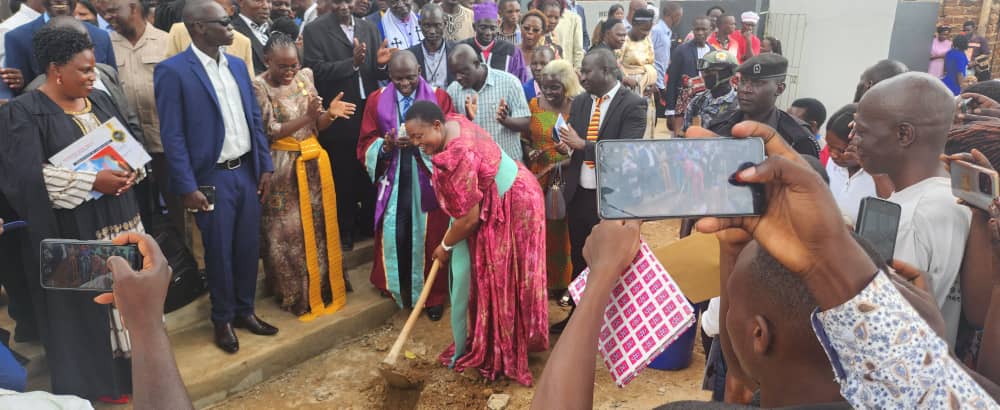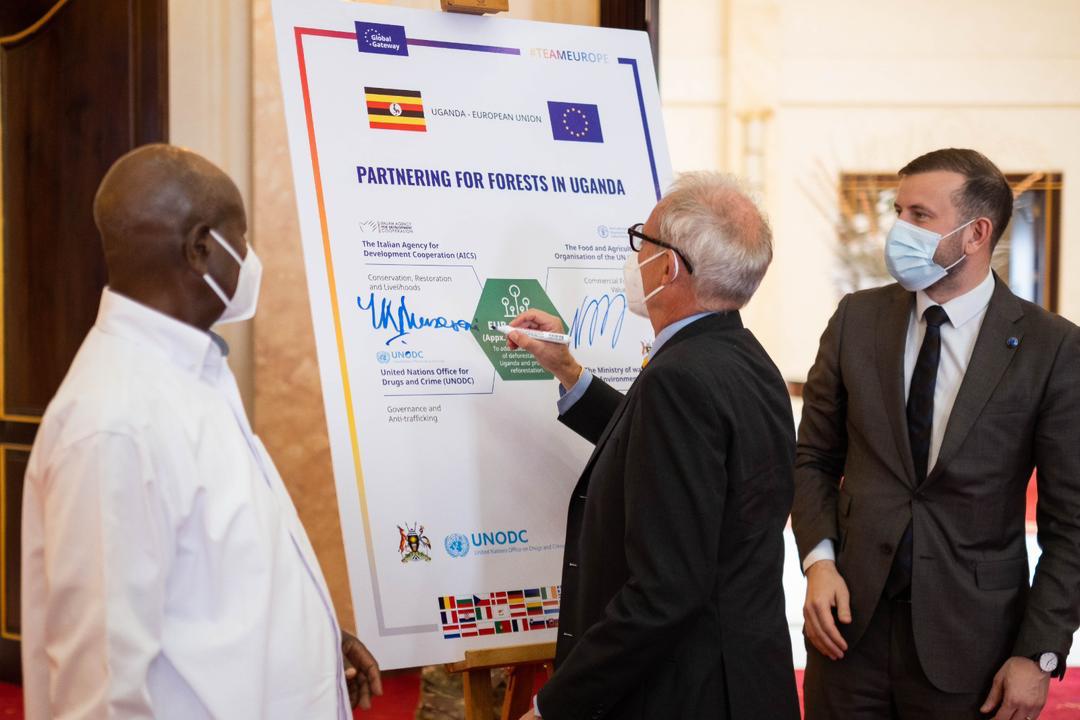The Addresses That Never Address the State of the Nation
Agather Atuhaire and Tabitha Agaba
Days after President Yoweri Museveni made the State of the nation address on June 6, critics say the speech, like many others before it, fell short of expectations. Not that they appear surprised.
Keep Reading
- > Museveni, Ramaphosa set to meet for Regional Security talks
- > Museveni warns against hindering Atiak Sugar Factory project
- > Museveni hails Atiak Sugar factory for benefitting Acholi, neighbouring areas
- > Museveni directs the Attorney General to draft legislation prohibiting National ID as loan collateral
Many say that rather than give an account of the country’s present economic, political, and social condition, the president is in the habit of painting a rosy picture on areas of his interest or making comparisons with state of affairs today to those before he came into power in 1986.
In this year’s speech, the centre of the president’s interest appeared aspects of the economy and security, which some agree have been the biggest concerns for Ugandans over the last few years.
Over the last two years, kidnappings and murders have sent shockwaves across the country and heightened a sense of insecurity. There have also been growing concerns Uganda’s economy has stagnated.
Amidst this, President Museveni sought to restore hope. He announced that the economy had grown by 5.8 percent and is projected to grow by 7 percent going forward.
Museveni said that this growth has been driven by the “far sighted” decision his government took in 2006 to invest in infrastructure.
“The budget for roads was raised from 398 billion to shs 3,442 billion per annum,” Museveni said, “It now stands at 4,786 per annum. The budget for electricity was raised from Shs. 178 billion to 2,858 billion. It now stands at 2.77 trillion per annum.”
These investments, he said, are beginning to result in the resumption of “our usual high growth” that had been interfered with by the shortage of electricity and more recently the drought.
As has become the ritual, to make his point about what his government has achieved over the 32 years he has been in power, Museveni compared the state of affairs with the situation he found in 1986 when he came to power.
“The size of our GDP in shillings was 6 trillion in 1986 and was Shillings 74 trillion by 2014,” Museveni said, “In US dollars it was 4 billion in 1986 and was US$ 27 billion by 2014.”
Leader of Opposition, Winnie Kiiza, said in her response to the 2016 state of the nation address that Museveni’s speeches don’t represent a state of the nation address.
“The State of the Nation Address represents an account of what was accomplished by Government and not an inaugural speech of a leader or a catalogue of his achievements since the 1986 military takeover of the state,” Kiiza said.
Others like economist Ramadhan Goobi also don’t think the state of affairs is as rosy as Museveni paints it. Goobi says Uganda’s economy has stagnated for the last five years.
He thinks the decision to invest in infrastructure was over ambitious.
“It is true Uganda needs to build infrastructure but we don’t need to do all the infrastructure projects at the same time,” the economist said.
Doing these projects at once, Goobi said, has overstretched the country’s budget.
“We should have identified projects that are related to that transition before going on to bring in more projects that are not necessarily going to contribute in the medium term,” Goobi added.
Political analyst Henry Kasacca also says the development of huge infrastructure projects cannot result into economic growth if people are not equipped enough to utilize them.
“You build roads to access the market when there is no market,” Kasacca wondered, “There are more immediate concerns that needed to precede infrastructural development.”
Indeed, there has been growing concerns that the infrastructure projects, which are taking the lion’s share of Uganda’s resources and exposing it to excessive debt, are not likely to attract any significant return on investment at least in the short and medium term.
For instance, there is fear that there is no capacity to consume the 2,000 MW of electricity that Uganda will soon start producing once the Karuma and Isimba dams are completed. This, some have cautioned, could mean difficulty in repaying the debt used to construct these projects.
Kiiza, for instance, said what Museveni hasn’t told Ugandans is that his projects have exposed Ugandans to high levels of indebtedness.
“We are more indebted today than we were in 1986,” the opposition leader said.
Kasacca is also concerned that the public debt is reaching unsustainable levels, which he says, cannot be a sign of a booming economy.
Middle income
Still under the economy, Museveni decried “too much importing and too little exporting”, which he said undermines the progress to a middle-income status.
“The GDP per capita today is US$776. To become a middle-income country, you need, at least, US$1,006 per capita. This money is calculated in Dollars. Therefore, Ugandans, please, buy Ugandan; travel Ugandan; health-wise, be treated in Uganda.”
However, critics say, the president’s talk on “too much importing” is just that, talk, similar to his 1986 pronouncement calling on all agencies including State House to purchase furniture from Bwaise, in Kampala. Yet today, State House and other government departments use furniture and other items customer manufactured in Asian and European countries.
Part of the problem with Museveni’s talk on the growth of the economy, critics say, is that it is yet to create wealth and jobs for the Ugandans—youth unemployment stands at over 80 percent.
Yet the policies pursued by President Museveni’s government, critics add, are designed to harness youth into patronage networks as tools for regime sustenance rather than supporting them to become active citizens, contributing to the transformation process of the country.
Corruption
When this is not happening, the policies are being heavily undermined by corruption. In his 2016 speech, Museveni said his government would expunge corruption among political leaders and civil servants.
“We are going to stamp out corruption as we stamped out indiscipline in the army,” he said.
This year, he has come up with a new unit to deal with corruption.
“There is no criminal, we cannot handle,” Museveni said, “Report any corruption you come across to this unit.”
He said the new unit would comprise of Mr. James Tweheyo, Ms. Martha Asiimwe and Sister Akiror.
The new unit appears a vote of no-confidence in the office of the Inspector General of of Government (IGG).
And to make the point, Museveni said: “What happened to the IGG? Why don’t the victims of corruption report those incidents to the office of the IGG? That was the purpose of that office; to protect the public from corrupt officials; to protect the investors against corrupt officials. The IGG should reflect on this. Are her staff credible? Why does the public not trust that institution? We need answers.”
Agriculture
On agriculture, the President has always talked about increasing investment of the sector to lift Ugandans from subsistence farming. But critics wonder why the figure of these Ugandans in subsistence economy has not changed from 68 percent for the last couple of years.
His efforts towards this issue have not created results; they include the Agricultural Sector Modernization Plan 1998-2001; Entadikwa Scheme; and Bonabagagawale (Prosperity for All) and now Operation Wealth Creation.
Kiiza said: “No chest-thumping can change the fact that in spite of the constant sloganeering: entandikwa, modernization of agriculture, bona bagagawale, prosperity for all, operation wealth creation and now Hakunamchezo something, the majority of our people remain trapped in subsistence, low output agriculture.”
In his speech, the president said he was addressing the issue by promoting commercialization of agriculture. His efforts, he said, were beginning to pay off with some people venturing into commercial farming.
“ This has been one of the battles I have been fighting since 1966, for the last 52 years,” Museveni said, “I do not accept to live with neighbours that are stuck in poverty.”
Interest rates
To address the challenge of access to credit, which is currently hindered by high interest rates (over 20 percent), the president said government was going to put more money into micro-finance and the Uganda Development Bank (UDB).
“The privatization of Commercial Banks failed to solve the problem of high interest-rates,” Museveni said, “We are going to solve it using the route of the enhanced micro-finance and the route of the more capitalized Uganda Development Bank (UDB). These institutions should be able to give loans to manufacturers, processors and commercial agriculture at interest rates of 12% or thereabout per annum.
Security
Away from the economy, Museveni addressed the question of security, which has become a major concern owing to a wave of kidnaps and murders.
To explain the sense of creeping insecurity, Museveni said that some of the terrorists of the Allied Democratic Forces (ADF) as well as other criminal elements, seeing that they could not survive in the rural areas, infiltrated the towns where government had not fully focused in terms of developing intelligence capabilities.
As a consequence, Museveni said, we had seven Sheiks assassinated as well as Major Muhammad Kiggundu, Prosecutor Joan Kagezi, AIGP Andrew Felix Kaweesi, and Susan Magara.
“These killings seem to have been linked with ADF,” Museveni said, “Other killings, like the women killed in the Entebbe - Wakiso areas, as well as the killings in the Masaka area on New Year’s Eve, were by local criminals using pangas.”
With this new challenge, Museveni said, we put in place a mechanism to build the intelligence gathering capacity in the towns and on the highways. “We are about to round-off the building of that capacity,” the president noted.
Museveni’s speeches, many say, often omit the state of the country’s social services.
Health and Education
The health sector, for instance, is grappling with understaffing, delayed salary payments, inadequate accommodation and inadequate equipment. There have been incessant strikes by medical workers over these issues. Rather than address the issues, Museveni retaliated by directing government to import medical doctors from Cuba. Like the health sector, critics say the education sector also needs critical attention. Yet these hardly feature amongst the priorities in Museveni’s speeches.
Politics and governance
Governance activist, Crispy Kaheru, also noted that President Museveni avoided the subject of politics and governance.
“With the developments in the neighborhood in Kenya where political harmony (dialogue) seems to be paving way for bigger strides in economic development, fight against corruption etc,” Kaheru said, “I felt that this was a serious omission on the side of the head of state.
Even if he had talked about the political aspect, many say, he would have still painted a rosy picture not reflecting the situation on the ground.
In his 2016 address, for instance, Museveni said Uganda’s democracy was the best in the world.
“Having followed closely world and historical events for the last 50 years,” he said, “I am not aware of any society anywhere in the world that is more democratic than Uganda as far as the forms and structures of democracy are concerned. Our democratic structure is comprehensive, thorough and massive. It is not easily rivaled.”
At the time, the opposition was up in arms over government’s refusal to carry out electoral reforms; there was dispute over the just concluded general election; and former Presidential candidate KizzaBesigye was under incarceration.


